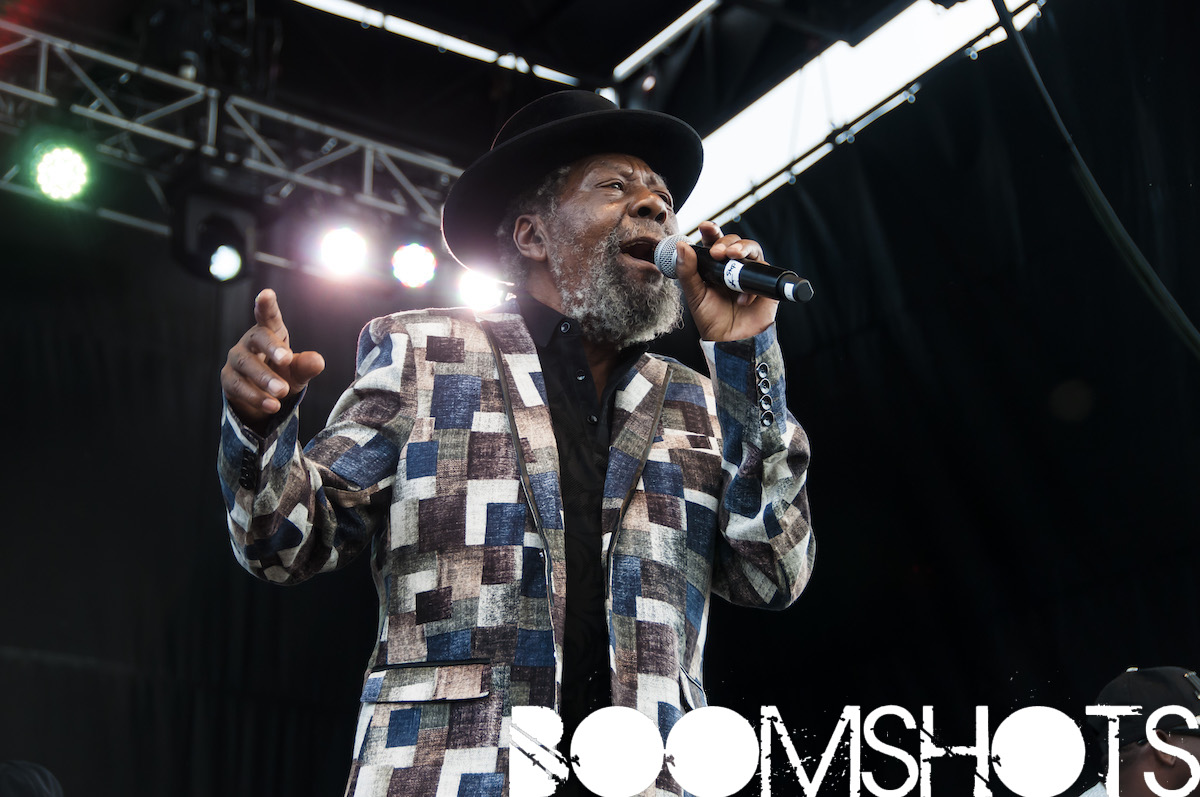
Paying Respect to a Pioneer of Deejay Music
The race is not for the swift, but who can endure it. And Jamaica’s foundation deejay Daddy U Roy is still setting the pace. Ewart Beckford, O.D., known to lovers of Jamaican music as U-Roy aka Daddy U Roy the Teacher, passed away last night at the age of 78. As a pioneer of Jamaican deejay music, aka toasting, aka the birth of dancehall, U Roy’s impact on popular music worldwide cannot be overstated.
In the video for Rah Digga’s “Imperial,” Busta Rhymes shakes his locks into the camera and proclaims that “This station rules the nation with version.” Ardent students of reggae roots will recognize the line as a direct lift from “Rule the Nation,” a musical blast from 1970 that forever changed the soundscape of Jamaica, sending tsunami-sized ripples out from the little island that rocked the world. Never before had an instrumental “version” of a popular song been combined with straight-from-the-dancehall microphone toasting to create a hit single. Working with legendary rock-steady producer Duke Reid, a smooth-talking called U Roy scored not one but three big tunes. “Wake The Town” and “Wear You to the Ball” completed U Roy’s six-week lock on the top three positions in the Jamaican charts, and proved that deejaying (or, as Yankees would rename it, rapping) was here to stay. Interview Continues After The Jump…
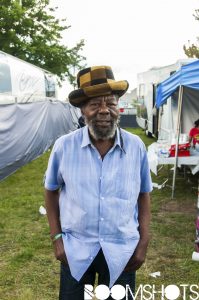
U Roy’s phenomenal debut came a full decade before MCs from the Bronx started complaining that the Sugar Hill Gang had bitten their style. So if you’re looking for the forefather of all rap stars, look no further. Though he is quick to credit Jamaican pioneers like Count Machuki, King Stitt, and Lord Comic, Daddy Roy is the one whose cool jive slang and hit records busted the dancehall style wide open, paving the way for untold generations of microphone chanters at home and abroad.
It’s been more than 50 years since this Rastafarian welder from the Kingston ghetto took up the microphone to nice up the dance for Doctor Dickies’ Sound—later progressing to Sir Coxsone’s Downbeat and King Tubby’s Home Town Hi Fi—U Roy is regarded as a living legend anywhere dubplates rotate. Now in his late 50s, he continues to tour and record when he’s not operating his own sound system, the mighty Stur-Gav Hi-Fi, rolling with an awesome crew of lyrical masters that inclludes Brigadeer Jerry, Josey Wales, and Charlie Chaplin. U Roy’s latest CD, Serious Matter, released by the French label Tabou, features duets with a who’s-who of classical reggae vocalists, from the late Dennis Brown to Gregory Isaacs, Beres Hammond, Israel Vibration, and Third World.
How can one man be worthy to spar with such a powerful range of talent? As Shabba Ranks put it in his song “Respect”—“Just cool, cool. U Roy done rule. U Roy a godfather of the deejay school.” Or in the words of another foundation deejay, Tappa Zukie: “U Roy is like a battery to me. Whenever I see U Roy is like I charge up. Y’unnerstan? Him just give me the vibes to work. He’s like showing me back the real style. Working with U Roy is like back in school. He is still the teacher.” If the latest graduating class of MCs and deejays should choose to listen, the Teacher has some valuable lessons to share. But as the old Jamaican saying goes, who can’t hear must feel.
Teacher, what do you think of the state of dancehall reggae right now?
Hey—there’s a lot of changes in the dancehall ting right now. The music change a little bit an tings. The singers and deejays is like playin’ some different ting, so it’s different from when we started. There’s more slackness now an stuff like that—X-rated stuff.
But this dancehall ting been going on for years. Some people make it look like it’s just since Shabba Ranks and some other youth come that this dancehall ting come around. This ting’s been going on for years. The dancehall type of music was some music weh it’s like you’re too hardcore for the radio play. So a lot of songs, when the radio station hear them, they already been a hit. Because the sound system dance make them be a hit before they even get release. Caw we used to have things like music on dub plate, this is what you would call exclusive pre-release, yunno? Most sound been playing dubplate at dance for years. The radio station can’t afford to play those type of music, because—according to them—it’s not up to their standard. So nowadays these people make it look like “Hey dancehall business just come around yesterday.” Them just acknowledge it now.
“Natty Don’t Fear”
You yourself have been making music since when, the 1960s?
From that time up to this, me play sound system. I wan’ tell you me a play sound system from like from ’65. But ’69 was the time when I kinda get more popular to all the Jamaican public.
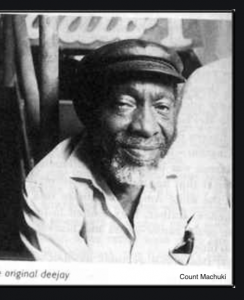
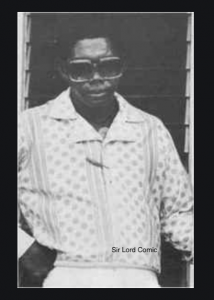
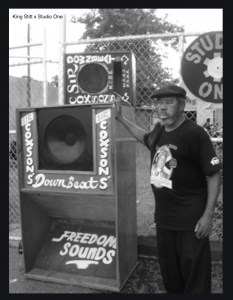
When you were coming into your own, who were the deejays you looked up to?
There was Count Machuki, Lord Comic, people like that, King Stitt, yunno? Count Machuki used to be my favorite deejay. I think that is one of the most… educated deejays that one can ever listen to. He don’t crowd his music. Whenever he talking on sound system he don’t crowd the singer or nothing. He just space his words, yunno, and he don’t have a whole lot to say so that he crowd tings up. This was one man that really surprise me how he never do a lot of recording. He start recording long after I start record. And I surprise how this man really have no hits—I don’t know why.
Even a Deejay name King Sporty. He used to play for Duke Reid too. Dem time, I was deejay too, but I wasn’t inna dem class. They was ahead of me inna the sound system business. I was just like a likkle schoolkid, goin’ to school and still ask my grandmother to go out on the weekends. Long before I start holding the mike and stuff like that.
But their style was kinda different from mine, because I kinda have this style that I… add things onto things. Like for instance I used to have my style say “WOW!” Yunno? Style like that. In my talking I’d say “Love in the ghetto baby WOW! you got it” These deejays, they never have that style. [he laughs]
How did your recording career start?
Well, me used to have a biiig crowd that follow me from any part of Jamaica I play. It’s from deh so the people dem really like me. But I never even believe that things woulda go the way that they go for me. At that time deejay business was no business that people really have as anything big. Caw hey—I do a song with Peter Tosh name “Earth Rightful Ruler” yunno and it never got much play. Then I did another one name “Dynamic Fashion Way” with Ken Boothe and Keith Hudson and it never still go too far.
Then about a year after that I did “Wake the Town and Tell the People” and “Wear You to the Ball” and “This Station Rule the Nation” for Duke Reid and it just took off. Believe me, I hear these three tune been played on the radio and it even surprise me. I say “Cho!—these tunes get me really known to the people.“ I had one two and three for like six weeks and number one tune for 12 weeks..
Wasn’t that a revolutionary thing for a deejay to voice a record?
[Laughing] Me tell you—it’s really revolutionary thing, beca’ it never happen before. So my style I think is a blessing. I can only say that. I can’t put it no other way, cause believe me: a deejay have 1,2,3 on the chart? On the top 10? Hey—this used to be mostly foreign music and tings like that weh take up the chart. But they go to different record stores and take up a survey of which is the fastest selling song for this week. Is just reality, the fastest selling song, man.
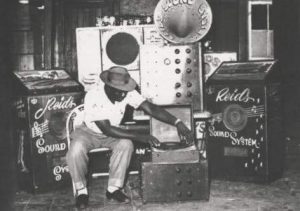
Whose idea was it to make those records?
It was Duke Reid’s idea. He was the producer. You see, we used to play Tubby’s sound system. And Tubby’s used to play a lot of Duke Reid and Coxsone music, okay? So somebody from Duke Reid studio come to a dance one night where I was playing and he heard me talking on one of these riddims. And he go back to Duke Reid and tell Duke Reid hey Tubby have a deejay is the wickedest deejay you could ever hear. Right after that Duke Reid siddown and call me. And when I go down a studio he say, Look, I want you voice even one riddim for me. So we talk about likkle money ting, because at the time is like—hey—nothing big never a gwan. Even comparing to what them youth have been pickin’ up now, is like just cheese money. But at the time still, ya happy.
When the song hit number one did you get a little more cheese?
Oh yes [laughing] oh yes oh yes oh yes oh yes, yunno. When the song start pickin’ up, I start pickin’ up same way an’ gettin’ some money from him, money that keep me comfortable around my house for the week. When things start getting good, now, I said to him, Hey my royalties I gwine need to have a little house. And so yunno I buy a little house out of my money because I used to really scared of paying rent and them stuff. One time he offer me a car and I say, Hey—I have a bed and I have a stove, and I have my pot and things like this and I don’t see no car that can hold all these things. Yunno? So I get my house and I comfortable, yeah.
“Cornerstone” With The Wailers
Deejay business was the beginning of rap music, right?
True true.
Do you think people really know and respect that side of the reggae?
I don’t think so. A lot of people do, a lot of people. But a lot still don’t. I just think that the time gone come when people gonna respect that.
What do you think about the rap mixing with the reggae?
One ting with me, I just like the more cultural side of hip hop. Something that send a message. I don’t like some of these hip hop weh talking bout bitch and mothafucker and stuff like that. We don’t need to sell these things to kids. Cause young kids is one of the biggest supporter in music, trust me. And if they hear you say something, is like hey—they gonna do exactly that.
As the teacher, what advice would you give to the younger artists of today?
Well… all I can tell them is hey, just be constructive, man. Yeh, just be more straight to the people. Come offa this gun talk an—yunno. We don’t want to hear about your gun and you have your gun pon you and dem stuff deh. Keep that! We don’t want no violence amongst the society. We want some peace and love, no matter what color you are, whether you white, pink, blue—just love. Ease off this war. War don’t make no sense. I don’t see no progress in war. Yeah. Something like that I woulda like tell them.
But I really like rap, becaw look, it keep the deejay business going. It’s the same form of deejay. It’s still deejay, but you call it rap. Singers come in and sing, rapper come in and say something—yunno I mean? It’s the same thing; it no different. Hey, for me, I really love it becaw it make it look like what I was doin’ wasn’t something stupid at all.
“Musickal Addick”
Photographs by Robert Cooper
Like Boomshots on Facebook
Follow @Boomshots on Twitter
Follow @Boomshots on IG

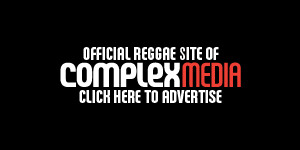

[…] “At that time there was no deejay music being played on the radio and stuff like that,” he explained to me a few years ago. “Most of the singers used to be there up front. You heard about the singers and […]
… [Trackback]
[…] Read More Infos here: boomshots.com/index.php/2021/02/daddy-u-roy-interview-dancehall-teacher/trackback/ […]